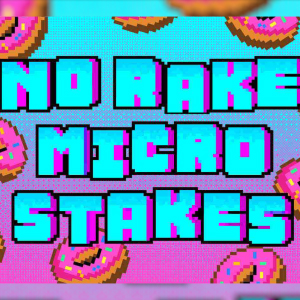Pennsylvania Facing $2 Billion Budget Deficit
10 years ago
12 Oct
The 100th day of Pennsylvania’s inability to carve out a budget for 2015-16 has seen renewed calls for online gaming to play its part in reducing the $2bn deficit the state is facing.
Pennsylvania is the number two casino gaming market in the country (behind Nevada) but it has so far refused to legalise and regulate online poker – a fact which recent reports say is costing them $129million annually once the market fully matures.
Add to this a projected $178million from ‘house-banked online casino’ taxation and the state could put a hefty dent in the budget deficit which it is facing, argue some of the house representatives. One of the main reasons that online gambling regulation is still under consideration is that it would help to reduce general taxation in the disputed budget for the coming financial year, which is always a politician’s first thought.
The flatting-out of the bricks-and-mortar casino market over the last few years is part of the reason why calls for online gaming to be introduced in budgetary plans has arisen. Although not directly responsible for the deficit, the Keystone State’s gaming revenues would likely also be boosted by accompanying online regulation, as has happened elsewhere when casinos have been tied in to online site legalisation.
The Republican-controlled House in Pennsylvania this week defeated a new budget proposal, which leaves the state facing its 100th day without a resolution of its financial woes.
Gaming Oversight Committee meetings will convene over the next few weeks, with public meetings covering slots in airports, Daily Fantasy Sports and sports-betting criteria, while a ‘Joint Public Hearing on Exploring the Potential of Online Lottery/Gaming in Pennsylvania’ is scheduled for Tuesday October 27th.
A new $500 million casino was approved by the Philadelphia Planning Commission earlier this week – bringing the total to fourteen within the state boundaries, two within the Philadelphia city limits itself – but the projected $300million annual windfall for the state is still off in the distance, with the Pennsylvania Gaming Control Board still required to give final approval to the plan before the project can begin in earnest.

In the meantime, one of the problems facing Philly lawmakers has been the vastly differing proposals for online gaming taxation levels, ranging from ‘15% to 54% of gross internet gaming revenue’ according to recent reports. Many in the online poker industry have decried these numbers as ‘exorbitant’ and ‘a deathblow for Pennsylvania’s online poker industry’, calling instead for a figure of less than 25% ‘the highest rate the industry can reasonably sustain’ according to poker writer Robert DellaFave.
The highest figures quoted for taxation equate to the similar live casino tax rates which are currently 55% for slot machines and 14% for tables, figures which have raised over $11.5bn in tax revenue since the first casino opened in Philadelphia in 2006.
The total gaming revenue over roughly the same period has hit almost $20bn, of which about 12% goes to the state’s General Fund, although the ‘property tax relief’ which casinos revenues were expected to provide have ‘failed to materialise’.
Back in 2004 Governor Edward Rendell, along with several of the state’s top lawmakers, pushed for the legalization of casino gambling ‘as a way to provide historic relief from burdensome school property taxes’. However, an Associated Press analysis of Pennsylvania’s Education Department data last year showed that the casinos haven't delivered enough revenue to put a significant dent in most homeowners' tax bills.






Comments
You need to be logged in to post a new comment